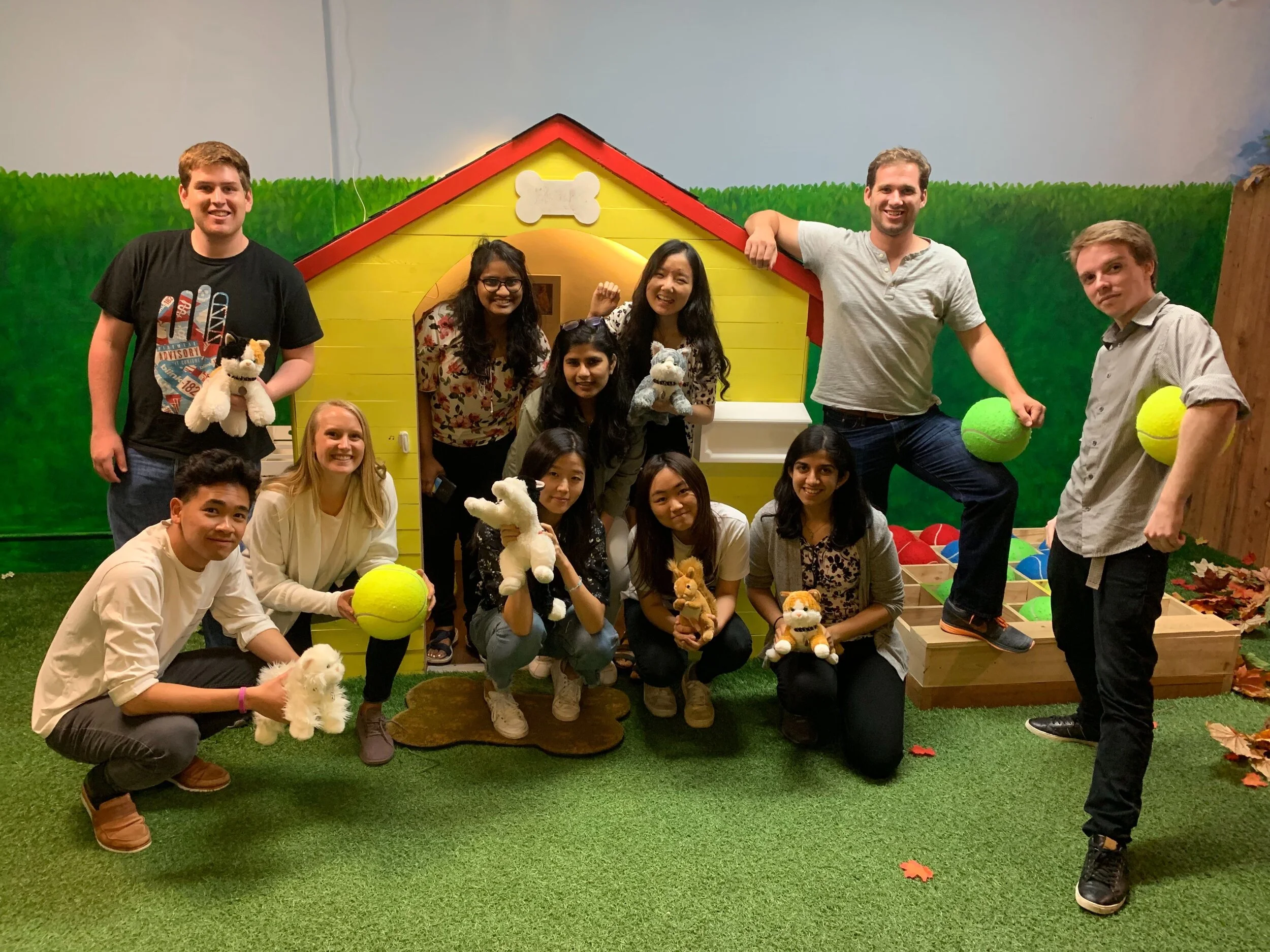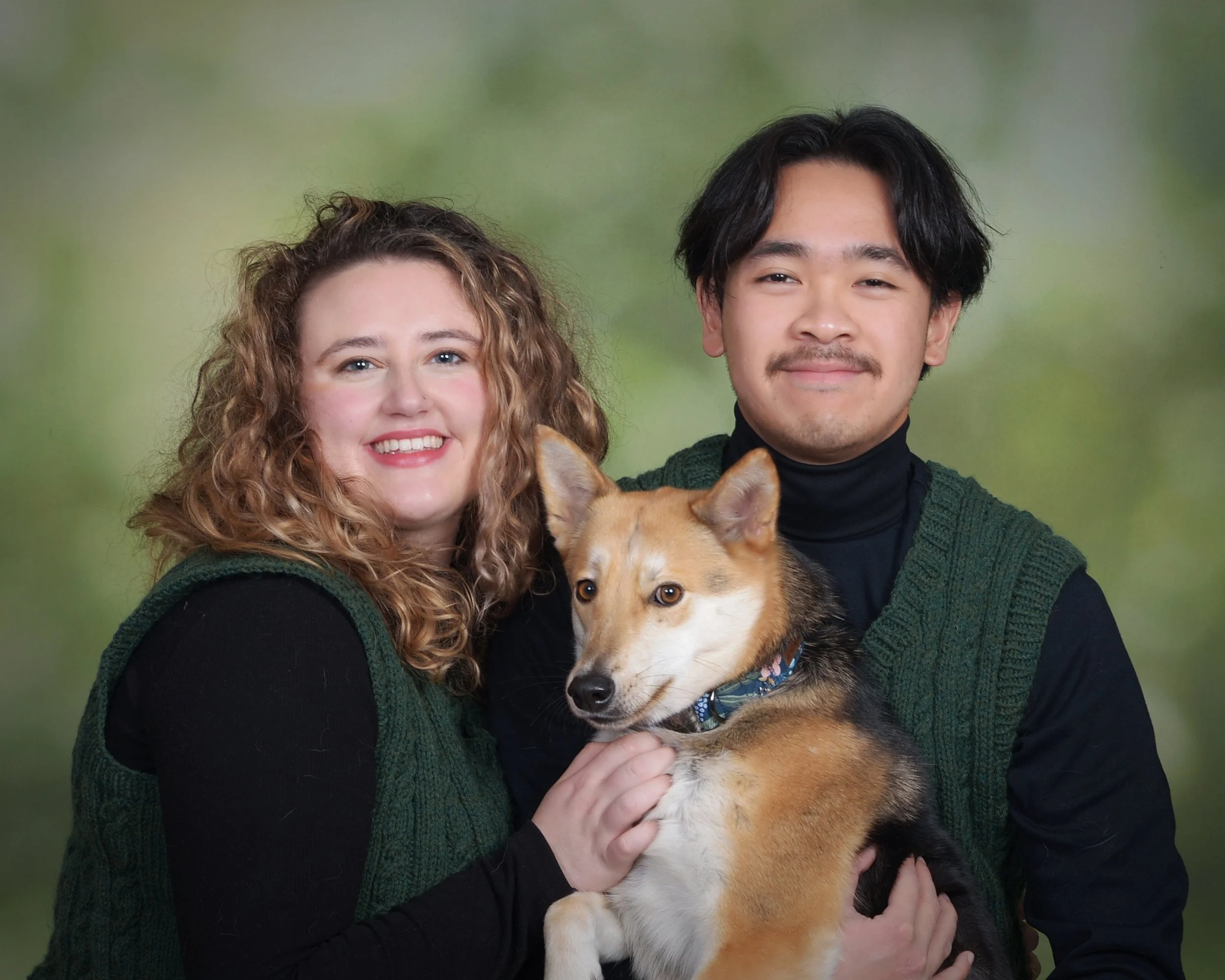It’s time for a little reflection and review. Each December since 2014, I have conducted my annual review and I’ve found the process useful every time. This practice was inspired by people like James Clear and Chris Guillebeau.
As always, the review attempts to answer 3 questions:
What went well this year?
What didn’t go so well this year?
What did I learn?
While it is personally helpful for me to reflect on the last year, it also shows that I have skin in the game and am willing to put these ideas to practice my own life. Ultimately, this is a personal process that allows me to figure out what steps to take in the upcoming year.
1 — What went well this year?
Let’s start with the good stuff.
Learning. Education at RIT has been going well this year. I took some interesting classes on Databases, Pattern Recognition, and Evolutionary Algorithms. I am also in the process of doing research for my Master’s thesis, which focuses on building deep learning models for recommendation system.
Internships. I did a summer internship in data journalism at Zest AI and had an awesome experience living in Los Angeles. I also wrote a blog post talking about that experience. Then I did a fall internship on data science for Limbik in New York as well. Having these internship experiences really expose me to how machine learning/data science is being used in the industry.
Writing. In 2019, I focused on publishing articles on both Medium and my personal website, as well as doing freelance data science writing for a variety of startups. Writing has consistently been a way for me to share my work with others, allowing me to build up a strong personal brand and let others reach my work. Throughout the year, my focus has transitioned from a pure explanation of technical concepts in machine learning and data science to the operational side and best practices of the field.
Here are the top 5 articles that I’m most proud of:
Why I Moved From Google Colab and Amazon SageMaker to Saturn Cloud
The 10 Categories of Recommendation Systems That Academic Researchers Should Pay Attention To
The 7 Questions You Need to Ask to Operate Deep Learning Infrastructure at Scale
Reading. I finished 75 books this year! Kind of amazing when reflecting on that number. You can find the complete list of books I have read, but here are my top 10 for this year:
“The Third Door” by Alex Banayan: A brilliant book that takes readers on an unprecedented adventure and redefines entrepreneurial hustle as Alex Banayan travels from icon to icon to decode their success.
“Data Science For Business” by Foster Provost and Tom Fawcett: A neat introduction of the fundamental principles of data science, along with the “data-analytic thinking” necessary for extracting useful knowledge and business value from the data you collect.
“Digital Minimalism” by Cal Newport: By the author of Deep Work, this book defines a philosophy that helps you question what digital communication tools add the most value to your life.
“The 5 AM Club” by Robin Sharma: A fascinating parable that showcases a revolutionary morning routine of high-performing individuals.
“Range” by David Epstein: An engaging survey of research and anecdotes supporting the case of being a generalist.
“Ego Is The Enemy” and “Obstacle Is The Way” by Ryan Holiday: Two brilliant books that taught me priceless life advice based on the Roman philosophy of Stoicism.
“Skin In The Game” by Nassim Taleb: A brilliant book that shows how the willingness to accept one’s own risks is an essential attribute of heroes, saints, and flourishing people from all walks of life.
“The Book of Why” by Judea Pearl: A comprehensive book that unpacks the statement “Correlation is not Causation.”
“Shoedog” by Phil Knight: A thrilling memoir from the Nike co-founder that chronicles the history of Nike from its early struggles to its evolution into an international brand.
“Chaos Monkey” by Antonio Garcia Martinez: I am currently reading this one and can’t put it down! Called “Liar’s Poker” meets “The Social Network,” this book exposes life inside the tech bubble from a former YC Founder and Twitter/Facebook product manager.
Networking. I was fortunate to attend many data and technology-related events this year. A couple of my favorite ones include Datacon LA, NYC Quantum Summit, All Tech Is Human, Full-Stack Deep Learning, and MIT Hacking Medicine. Besides that, I went to a bunch of meetups in LA and NYC during my internships. An event that I am really excited for next January is the REWORK Deep Learning Summit in San Francisco.
Podcasting. I’m definitely a better podcaster and interviewer at the end of this year than I was at the beginning of it. Most of that is just due to practice. In 2019, I interviewed 20 different guests for my data science podcast Datacast. I’m excited to do more of this in 2020 with scheduled guests already lining up for January.
Yoga. I discovered yoga this year because of my injuries (discussed later on) during the summer. I mainly used ClassPass to find yoga classes during my time in LA and NYC, and have done more than 50 classes over the past 6 months. Yoga works quite well for me as it is really about the mind-body connection. If you are in either of these cities, I would recommend checking out Y7 Studios, Alo Yoga, or Playlist.
Travel. I also did a fair bit of travels this year, though not much. The year began with some travels in New England, including Boston, Manchester and Portsmouth (New Hampshire), Portland (Maine). Then during March, I head down south to visit New Orleans, Houston, and Austin. I spent the whole summer in Los Angeles. For the fall, I spent 3 months in New York, with a small weekend trip to Berkeley. Finally, I’m writing this annual review from Seattle.
2 — What didn’t go so well this year?
And now the not-so-fun stuff.
Injuries. I have 2 physical injuries this year. The first one on my left wrist during indoor soccer that forced me to wear a cast from February to April. The second one on my right ankle during outdoor soccer that torn my ligament and made me wear a big orthopedic cast from May to July. Not fun at all.
Handling Stress. I have a lot of things on my plate this year, so at times I felt overwhelmed. I tried out meditation, which helped a bit to calm my mind. But to be honest, I need to be more focused and prioritize the “important, but not urgent tasks.”
Nutrition. I believe I eat a reasonably healthy diet (sweetgreen and Dig Inn, anyone :). But one thing for certain, I don’t cook nearly as many meals as I should. I also feel that I drink too much coffee and tea but not as much water. This is the missing link for me when it comes to lifting heavy weights and doing heavy HIIT workouts. I certainly have a lot of room for improvement here.
3 — What am I working toward?
My attention will be focused on 3 areas in 2020.
Get My First Industry Job. This is priority number one. I want to land a fantastic job. The next 5 months will be stressful to apply for roles and prepare for interviews (and believe me, data science interviews are hard!). But it’s my responsibility to make it happen.
Ruthlessly Eliminate the Inessential. My biggest struggles in 2019 were caused by trying to do too much in too little time. From schoolwork to job applications to side projects, my time has become stretched. I need to get better about protecting my schedule and ruthlessly eliminating everything except the most important tasks.
Write A Strong Thesis. I am really excited about my research and have a lot of ideas to design and implement experiments. Recommendation system is a heavily applied field, so I can see how my work having an immediate impact on most companies.
That’s it! As always, thanks for reading. Happy 2020!
The Annual Review Archives
This is a complete list of Annual Reviews I have written:



